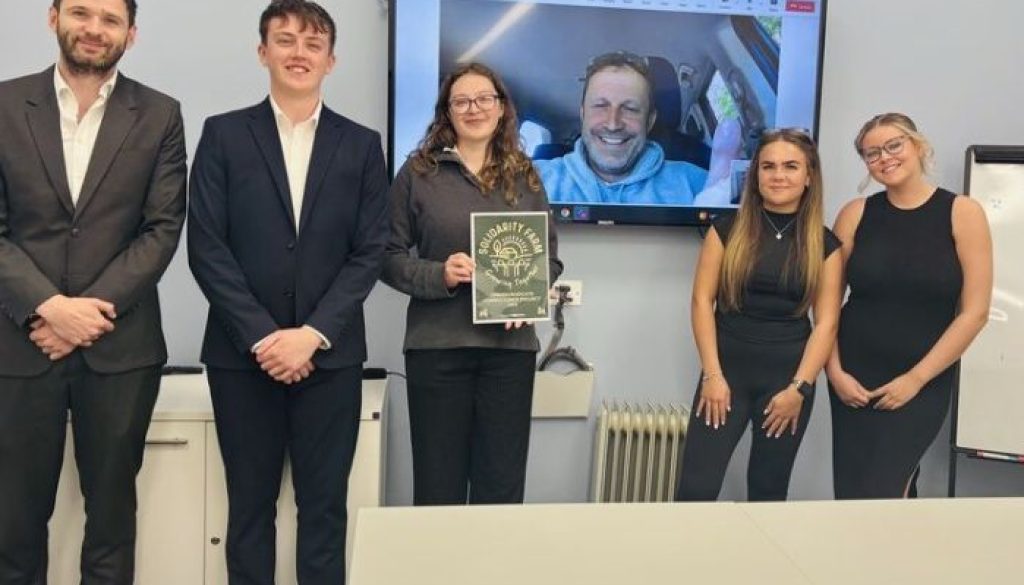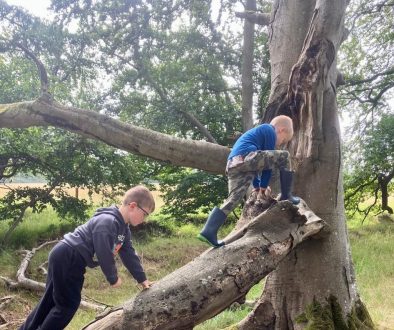Research by Northumbria students revealed valuable insights into alternative education for Solidarity Farm
A few months ago, The Business Clinic at Northumbria University ran a consultancy project digging into the work at Solidarity Farm. The student-led team, also known as ‘THENORTH4’, provided a valuable report with beneficial information for us to action here at Solidarity Farm.
They conducted interviews with parents and teachers and found that there is a “strong demand for alternative education services that support social anxieties, mental health concerns, and engagement through an enriching environment.”
Some of the key concerns that were raised were:
Challenges of Mainstream Education for Students with Additional Needs
Rigid timetables and large cohorts alienate students with additional needs. Parent One described their child’s struggle with early mornings, lesson transitions and disengagement in classes with 25-30 pupils. Teacher Two observed students carrying “negative relationships with teachers,” which creates a barrier and resistance to learn and engage. Teacher Three noted that mainstream environments can struggle to re-engage vulnerable learners who may have been excluded or disciplined. The lack of flexibility in mainstream education can leave these students feeling overlooked and disconnected. In contrast, alternative education like Solidarity Farm offers adaptability and activities to ignite achievement and confidence in an enriching setting.
The Role and Benefits of Alternative Provisions
A recuring theme throughout the interviews found the significance of alternative provision in supporting young people’s academic journeys, as well as prioritising emotional well-being alongside progression. Parent One, who’s child has experienced alternative provision, shared “the attendance has massively improved. So it’s got her to do some day-to-day routine.” Parents emphasised the restorative impact of non-traditional settings, noting the positive improvements in confidence and development of life skills. Teachers also remarked an increase in motivation and interest in skill development. Teacher Three said: “A functional skills curriculum… gives more time for personal learning.” The findings propose that provisions are more than a last resort, but a proactive and essential part of mainstream education, that ensures focus remains student-centred.
Personalisation of AP’s
With so many children all in one place, it can be easy for a child to unseen in mainstream education. Parent One shared that their child’s tailored sessions match the young person’s pace and needs, encouraging their sense of purpose. Within alternative provision, personalisation is prioritised and valued as an asset. In the interviews, Teacher Two explained the importance of “smaller one-to-one working” for meaningful engagement. This approach encourages individuality and value through getting to know the kids and dedicated time with staff.
These interviews remind us how alternative education can be invaluable to a young person. Each young person is different and may not need alternative education. However, everyone deserves to feel valued and belonging. For some, experiences away from mainstream education can provide different perspectives, new skills and ways to navigate both learning and life.




